A Twist in Irving Fryar’s Redemption Story
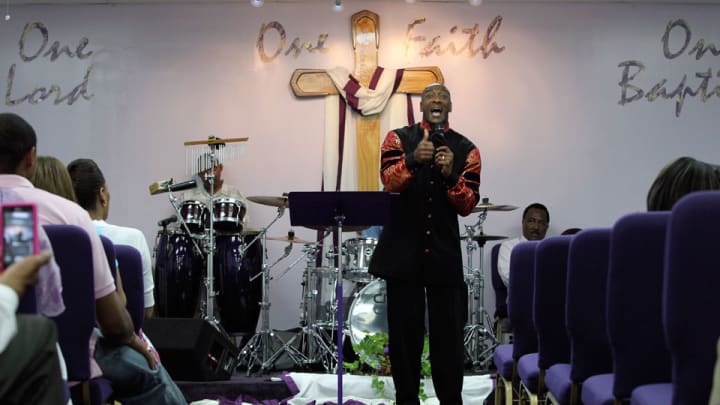
BY GREG HANLON
From bank to bank to bank to bank. All in a single day, in December 2009. On the New Jersey side: Cornerstone Bank, The Bank of Burlington and Sun National. Over the Delaware River, into Philadelphia, to Beneficial Bank.
Allene McGhee, then 68, the mother of former NFL wide receiver Irving Fryar, entered her name at each “Sign Here” tab. With that, she closed on four home equity loans that day, adding to a fifth from a few days earlier, all using the same house as collateral. Her signature attested to each bank that she was not using the house as collateral for any other loans. In fact, she used one home valued at $140,000 to obtain five loans totaling some $700,000. Little of the money would be paid back.
This would be bank fraud, or more specifically in this case, second-degree conspiracy and theft by deception, a crime punishable by up to 10 years in prison in New Jersey. Fryar and McGhee were indicted on those charges last October: State prosecutors allege that McGhee knew exactly what she was doing when she closed on the loans and that Fryar, along with a local broker, William Barksdale, masterminded the scheme. Prosecutors say that at the time of the scheme Fryar had crippling financial obligations related to his suburban Philadelphia mansion. (The mansion is not the house that was used as collateral.)
At a status conference today, prosecutors offered Fryar and McGhee a plea deal, the severity of which reflected their confidence in their case: five years for Fryar, three for McGhee. Both declined the deal, and a trial date has been set for Feb. 3. Their lawyers claim the two were unwitting dupes in a scheme designed to benefit Barksdale. (Neither Fryar nor McGhee would comment for this story.)
After a jailhouse revelation, Fryar became a Pentecostal minister in the early ’90s. (Bill Frakes/Sports Illustrated)

Fryar’s indictment came as a shock, given the reputation he has cultivated over the past two decades: that of a reformed man who, through faith in God, conquered the demons that nearly sabotaged his life and his NFL career, and dedicated himself to helping others.
Fryar speaks freely of his past, the sinning folded neatly into his redemption narrative. His was a life of drugs, booze, arrests, domestic violence and depression, which he says led him to attempt suicide several times. He said he once put a gun to his head and pulled the trigger, but the gun jammed. “God said, ‘No! I got something for you to do,’” he told The Star-Ledger in August 2013, two months before he was indicted.
In the ’90s Fryar became a Pentecostal and Baptist minister and earned a Ph.D. from the North Carolina College of Theology. He was an example to others, someone whose credibility stems from having taken both the bad path and the good, who therefore knows of what he speaks. His younger teammates called him “Rev.” He became known as one of the NFL’s good guys, committing significant money to at-risk youth and visiting sick children in hospitals. He ended up playing 17 NFL seasons, a feat of dedication and clean-living in a league in which careers are typically a fraction as long, and retired fifth all-time in receptions.
Afterward, Fryar founded a church in his native Mount Holly, N.J., became a regular at the NFL rookie symposium and last year was hired to coach high school football. In all of those roles he was charismatic and intense, imparting his signature message: “Don’t do what I did.”
“I don’t regret it,” Fryar once told The Philadelphia Inquirer, referring to his troubled past. “I wouldn’t be where I am now if I didn’t have to go through what I went through.”
That was in 1996, two years before he was given the Bart Starr Award, which honors NFL players who exemplify outstanding character at home, on the field and in the community.
But now, as he awaits trial, things have fallen apart. After the indictment, he was fired from his high school coaching job and as a spokesperson for a mortgage assistance business run by his friend, fellow former pro Mario Henry. He was not invited back to the rookie symposium this year—“We decided to go in a different direction,” NFL spokesperson Greg Aiello wrote in an email. In June his wife of 29 years, Jacqueline, filed for divorce.
It was while sitting in a jail cell in 1990 after being arrested on weapons charges that Fryar said God spoke to him for the first time, and his redemption journey began. If the prosecution can prove that Fryar helped drive this scheme, his journey will return to where it started.
* * *
Fryar’s New Jerusalem Church in Mount Holly, N.J. (Stan Grossfeld/The Boston Globe/Getty Images)

It is September 28, Elder Pastor Dr. Irving Fryar’s 52nd birthday, a Sunday morning at New Jerusalem House of God, and about 60 congregation members are present. Fryar is in phenomenal shape and is dressed immaculately, head clean-shaven, beard neatly trimmed. New Jerusalem, though non-denominational, draws heavily from the Pentecostal tradition’s belief that the Holy Spirit can redeem you and make you pure if you let it in. The church’s motto is “The house where the Spirit of God saves and saturates souls,” and during the early part of the service, a woman bursts into tears while singing the Lord’s praises. The name New Jerusalem itself speaks to redemption: In the end times, according to the Book of Revelation, a New Jerusalem will rise, one devoid of sin.
Fryar grew up a stone’s throw from the building, exactly 92 block lots away from the church’s address, 400 Washington St. Before its current location, the church bounced among temporary homes, and after its 92nd service, Fryar learned that the current location was available. It was not a coincidence, he believes.
With a visiting reporter, Fryar is polite, welcoming him to stay for service and instructing his staff to give him a welcome packet. But he says he will not talk about his legal trouble, and he asks that the reporter not interview members of his congregation.
Fryar preaching in Florida in 1995. (Bill Frakes/Sports Illustrated)

To open the service he asks for those coming for the first time to raise their hand, and he implores the reporter—“my brother in the back”—to do so. At that, he commences the singing of the church’s customary welcome song to visitors. The bass, percussion and keyboard kick in, and the entire congregation turns to the reporter with smiling faces, singing, Gospel-style, “Welcome to New Jerusalem.” Fryar urges them on with emphatic interjections: “Put your hands together and sing it like you mean it!”
There are birthday balloons set up near the pulpit. None of the speakers addresses the charges against Fryar explicitly, but a church deacon takes the mic and intones, “We are here to give notice to Satan: No matter what he thinks he can do to our pastor, he can’t touch ’em!”
The crowd rips into applause, and the bass player kicks into a thumping baseline: It’s M.C. Hammer’s “U Can’t Touch This.” The congregation laughs and applauds in recognition, while Fryar, delighted at the birthday surprise, laughs and sways to the beat. A young man takes the mic, providing a hip-hop overlay:
“Pastor, from NJ-HOG [House of God]/
Can preach His grace, through a storm/
Thank you Lord for blessing me/
With someone who through you brings out the best in me!”
* * *
An electric talent on a powerhouse Nebraska team, Fryar also had a string of off-field troubles in Lincoln. (Andy Hayt/Sports Illustrated)

When Fryar was growing up nearby, his closest male role model didn’t bring out the best in him. His father sang in the church choir, sure, but according to Fryar he also was an alcoholic who would take out his frustrations over his menial jobs by beating on Irving’s mother, and, if he intervened, on Irving himself.
Violence was normalized for Fryar, and he ran the streets with a crew called G-Town, for Ghetto Town, whose members used fists and baseball bats to protect their turf. His street name was Swift, a reference to his speed, which would be clocked at 4.23 in the 40 and draw the attention of the University of Nebraska, which was eager to recruit talented inner-city kids from the coasts to maintain its status as a national power. Hence the arrival in sleepy Lincoln of wingback Irving Fryar and running back Mike Rozier, from Camden, N.J., the future Heisman Trophy winner and two-time Pro Bowler.
The duo became known as the Jersey Jets, two superstars who played fast and lived fast, whose energy and egos were too big for Lincoln. Fryar’s car collection included a yellow Corvette, a Nissan Maxima and a Datsun. According to Armen Keteyian’s 1989 book Big Red Confidential, which took an investigative sledgehammer to the previously held notion that coach Tom Osborne ran a squeaky-clean program, Fryar began to dabble in cocaine at Nebraska in 1983.
“I know I was dirty,” Fryar told Sports Illustrated in 1995. “Filled with drugs, filled with lies, filled with alcohol.”
Gambling was another vice many suspected of Fryar: When he turned pro, rumors of his gambling were so persistent that the NFL investigated him, though the league determined that Fryar hadn’t bet on pro games after he passed a lie detector test. Still, William Ouseley, the former FBI agent who headed the investigation, told Keteyian that when it came to rumors of Fryar’s gambling in college, “I wouldn’t doubt anything said about him.” Keteyian hinted in the book that Fryar intentionally dropped a touchdown pass in the 1984 Orange Bowl, a suggestion Fryar has denied.
Fryar was often affable and engaging, but he had a foul temper and a seemingly bottomless well of anger that were quick to come out. Martha Florence, a former girlfriend, sued Fryar for medical damages after she said Fryar broke down her door and assaulted her. Fryar pled guilty to misdemeanor assault to get other charges dropped, and a jury found in favor of Fryar in the civil suit. Florence said that Fryar would also regularly abuse his pet Dobermans, and that one time, after one dog had chewed his stereo speaker, he picked the animal up and threw it against the wall.
“I was always thinking he was bipolar. He came across as a really nice guy, but once you challenged him or crossed him, all hell broke loose,” Florence says. “He was hair-trigger and really obsessive. The same qualities that made him a really good player made him a really icky human.”
The first receiver ever drafted No. 1 overall, Fryar languished on weak Patriots teams as his personal life sank ever deeper. (Damian Strohmeyer/Sports Illustrated)

Fryar was selected by the Patriots first overall in the 1984 draft, the first receiver ever to go No. 1, but the anger and self-destructiveness from his college years persisted. Fryar quickly became known as a player whose physical gifts were losing the battle with his psychological encumbrances.
The negative headlines piled up during Fryar’s first few years in the NFL. There was the time he and Jacqueline, who was pregnant, got into a fight four days before the January 1986 AFC Championship Game: According to a Boston Globe account, after Fryar knocked her down, she sliced his hand with a knife, requiring six stitches. (Fryar missed the title game but played in Super Bowl XX.) During a game the next season he separated his shoulder in the first half, then left the stadium and crashed his car into a tree while listening to the game on the radio. In 1990, Fryar was struck in the head during a Rhode Island nightclub brawl. He broke away from the scuffle, ran to his car and stuffed a pistol in his boot. When cops arrived, they arrested Fryar for carrying a gun without a permit, a felony. He spent the night in jail, though the charges were later dropped.
“I know I was dirty. Filled with drugs, filled with lies, filled with alcohol,” Fryar told Sports Illustrated in 1995.
But then his jailhouse conversation with God, his resolution to turn his life around, followed by a quarter-century during which Fryar became known for good things. His religious transformation reaped immediate benefits on the field as well. In 1991 he surpassed 1,000 yards for the first time, becoming, at 29, the star he was forecast to be since he was drafted. He went on to play for Miami, Philadelphia and Washington, surpassing 1,000 yards four more times and making four Pro Bowls past the age of 30.
The second half of Fryar’s career became a testament to the message he preached: It’s never too late for salvation.
* * *
Fryar and his mother, Allene McGhee, at a court appearance in January. (Dennis McDonald/Burlington County Times/AP)

Until about 25 years ago banks observed a strict protocol of due diligence when making home equity loans: When an applicant listed his home as collateral, the bank would send a lawyer to the local registry of deeds to make sure no other liens existed on the property. Only after this verification would they extend the loan.
In the ensuing years banks infamously loosened their lending practices, one of the main factors in the global financial crisis of 2008. Because banks would immediately offload promissory notes and earn a cut of the transaction fees, they became incentivized to process loans as quickly as possible. According to Richard Howe, the Register of Deeds for Middlesex County in Massachusetts, banks found that it was more cost effective to buy insurance covering potential losses on loans than it was to perform due diligence.
“If you’re going at the diligent slow speed of the old system, you can only do 100 loans a week. But if you’re going at 21st century speed, you’re doing 500 and letting the land records catch up,” Howe says.
After the crash, banks put in place tighter restrictions on loans. But some took longer to do so, according to Prof. Linda Fisher of Seton Hall Law School, who specializes in mortgage fraud. “It was getting tighter, but it depends on the lenders. Smaller community and regional banks” — like the ones Fryar and McGhee are accused of defrauding — “hadn’t put in place the restrictions of the bigger banks.”
“You’ve got to hustle to make this scheme work,” said New Jersey’s Attorney General.
Prosecutors believe that Fryar may have heard of this specific scheme from his dentist, Alfred Dennis, who had introduced Fryar to Barksdale, the imprisoned broker who will testify against Fryar. Dennis and his wife, Carla, pled guilty in May to knowingly carrying out a similar scheme that defrauded banks of $925,000; Dennis was sentenced to three years in prison and his wife to five years’ probation. A spokesman for the New Jersey Attorney General’s office said the office had never seen this specific scheme before.
Fryar was in severe financial distress, according to prosecutors. Before the scheme, they say Barksdale had helped Fryar pay off a tax lien on his sprawling mansion in Jobstown, N.J., about 15 minutes from Mount Holly. Property records support the prosecution’s claim, showing that the house had been a source of financial trouble for Fryar for several years: There was a 2006 federal tax lien on his house for $76,000, which ultimately was paid off in 2008, and a $43,000 federal lien from 2010, which has not been paid off. Fryar actually lost the house to foreclosure in 2007, though his mother purchased it back from the bank in 2009.
“I could tell that he was really attached to that house, but it was getting to the point where it was strangulating a lot of things,” says Mario Henry, Fryar’s former business partner. (Henry, who spent some time as a receiver on the Patriots practice squad and in NFL Europe in the ’90s, says he dismissed Fryar as a spokesman from his mortgage assistance business after the indictment, but said that the two are still friends.)
Of the $700,000 Fryar and McGhee borrowed, prosecutors allege Fryar received or spent more than $200,000. A source said Fryar paid off a $120,000 debt he owed another man, and that he wrote $50,000 in various other checks. (The prosecution also alleges that the applications falsified McGhee’s wage information, claiming she earned more than $6,000 per month as an event coordinator at New Jerusalem, a total her tax returns do not come close to accounting for.)
“She didn’t get any money,” McGhee’s lawyer says. “What she got was robbed.”
Of the five banks from which the pair took out loans, Sun National, which loaned out $133,000, was the only one that mostly got paid back. The other four banks wrote off the loans as losses, at which point the banks became wise to the scheme. This triggered an FBI investigation that ultimately led to Barksdale’s conviction and the charges against Fryar, his mother and the Dennises.
Barksdale’s lawyer, Robert Agre, said that his client’s scheme was part of “a culture of people getting loans beyond their means. The bottom line was that people thought money was easy to obtain and banks were unlikely to do their due diligence. And when the loans came due, you think your fortunes will have turned.”
The lawyers for Fryar and McGhee contend that their clients were unwitting pawns in a scheme Barksdale ran to benefit himself, and that his agreement to testify in exchange for a lighter sentence undermines his credibility. Fryar’s attorney, Michael Gilberti, would not comment on the specifics of the case but says that Fryar’s name does not appear on any of the documentation associated with the scheme. McGhee’s lawyer, Mark Fury, says McGhee was just trying to refinance her home and got conned by Barksdale into “a merry chase through a bunch of transactions that has led us here.”
“She didn’t get any money. She didn’t get any housing. What she got was robbed,” Fury says.
The prosecution, along with Agre, Barksdale’s attorney, says the benefits of the scheme went almost entirely to Fryar and McGhee. Most incriminating of all, they contend, was the choreographed nature of the closings within a short period of time, which prosecutors believe was intended to preclude banks from doing due diligence, and which they say stands as evidence that Fryar and McGhee knew they were doing something wrong.
“When you got a situation in which you’re using the same property on the same day to take out loans that are a half a million dollars more in total than the property is worth, how can you not know?” acting attorney general John Hoffman said in an interview with CNBC.
Hoffman added, “You gotta hustle to make this scheme work.”
* * *
A Twist in Irving Fryar’s Redemption Story
By the time Fryar finished his career, with Washington in 2000, he was one of the most accomplished and respected players in the league. (Jon Ferrey/Allsport)
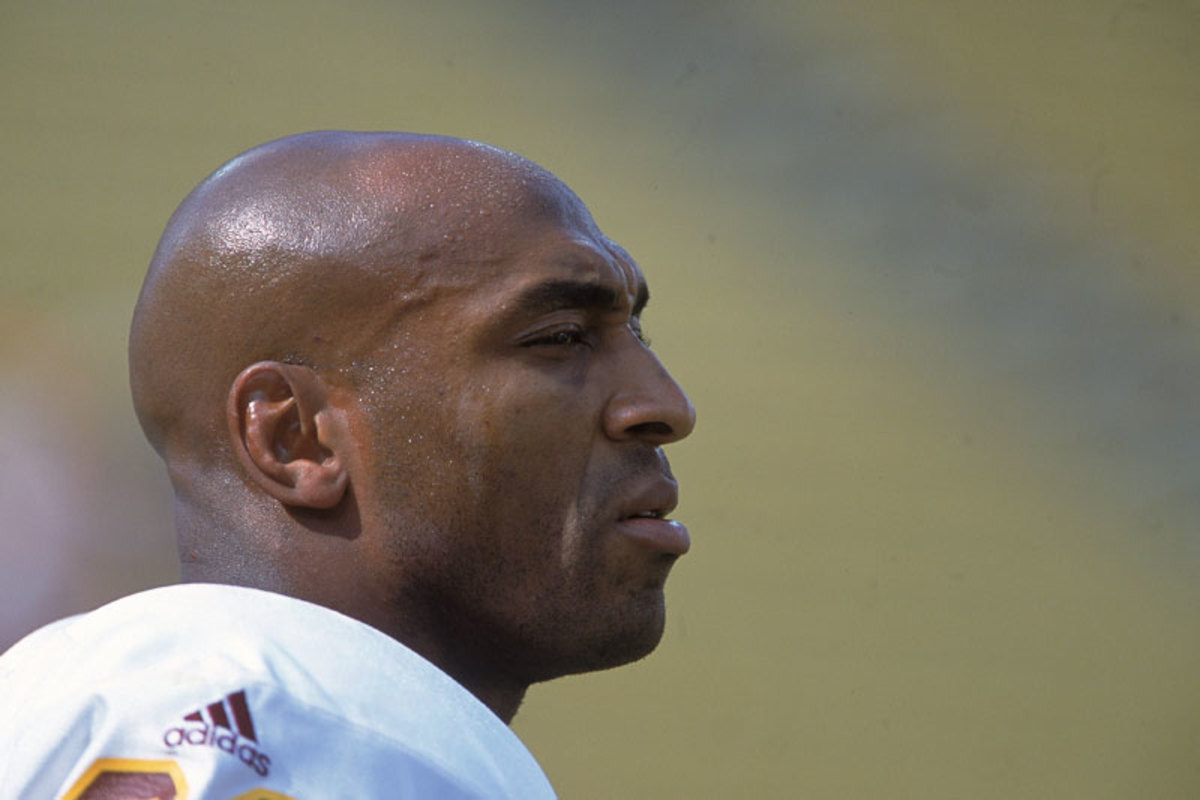
His talent was never in doubt, but Fryar struggled as New England could never settle on a quarterback. (Anthony Neste/Sports Illustrated)
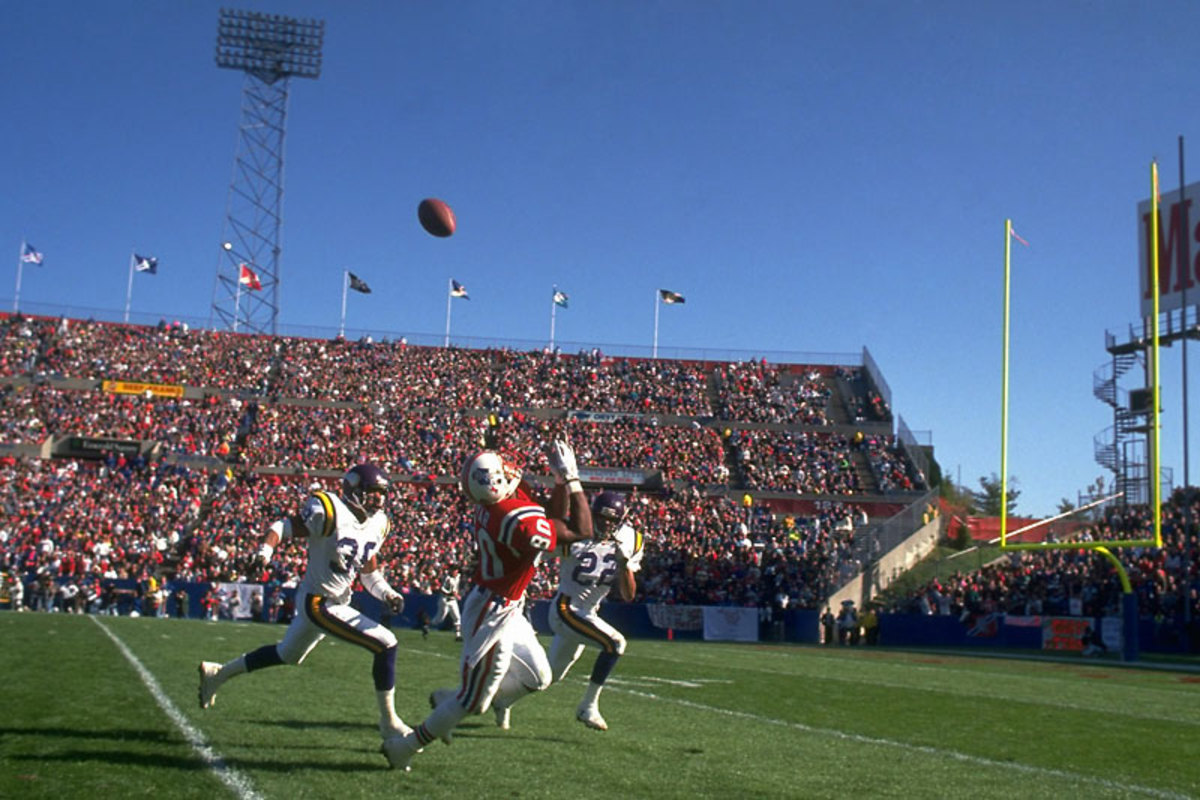
Super Bowl XX: Fryar scored the lone Patriots touchdown in a 46–10 loss. (Gin Ellis/Getty Images)
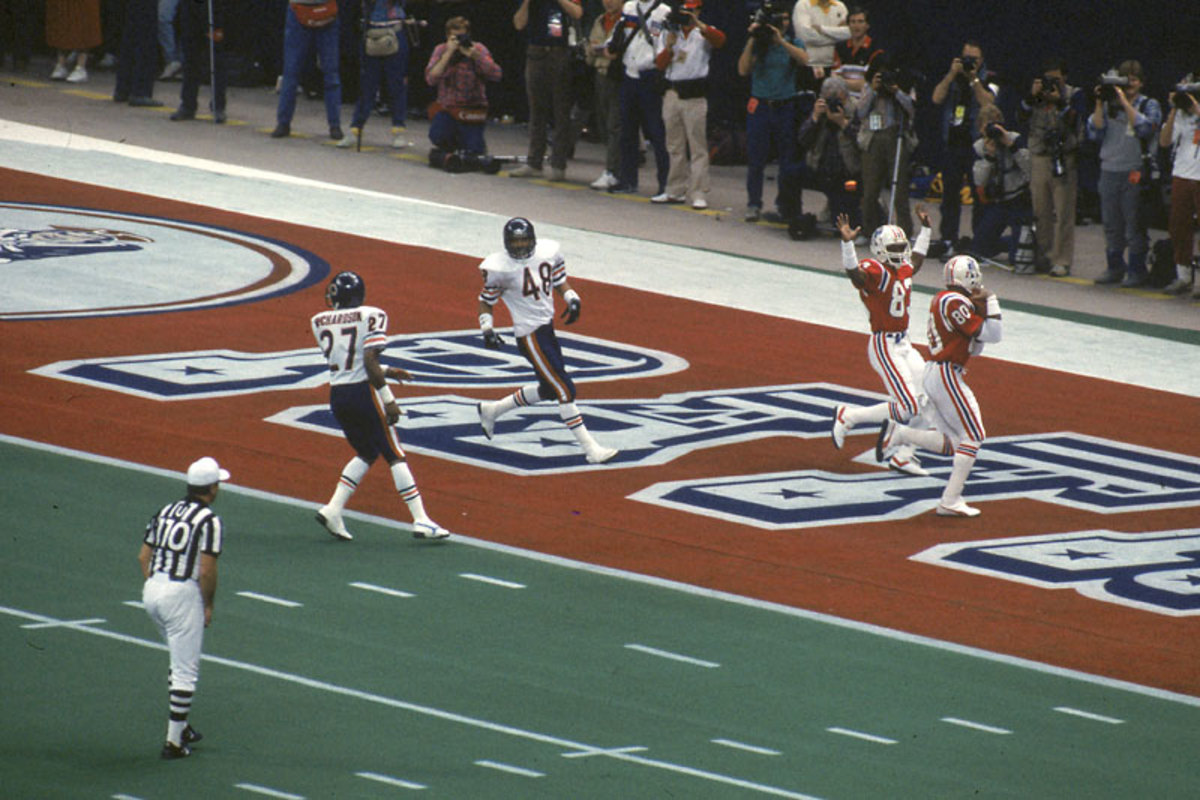
Fryar hit his stride with a 1993 move to Miami, where he made two Pro Bowls and hooked up with Dan Marino for 15 of his 88 career touchdowns. (Walter Iooss Jr./Sports Illustrated)
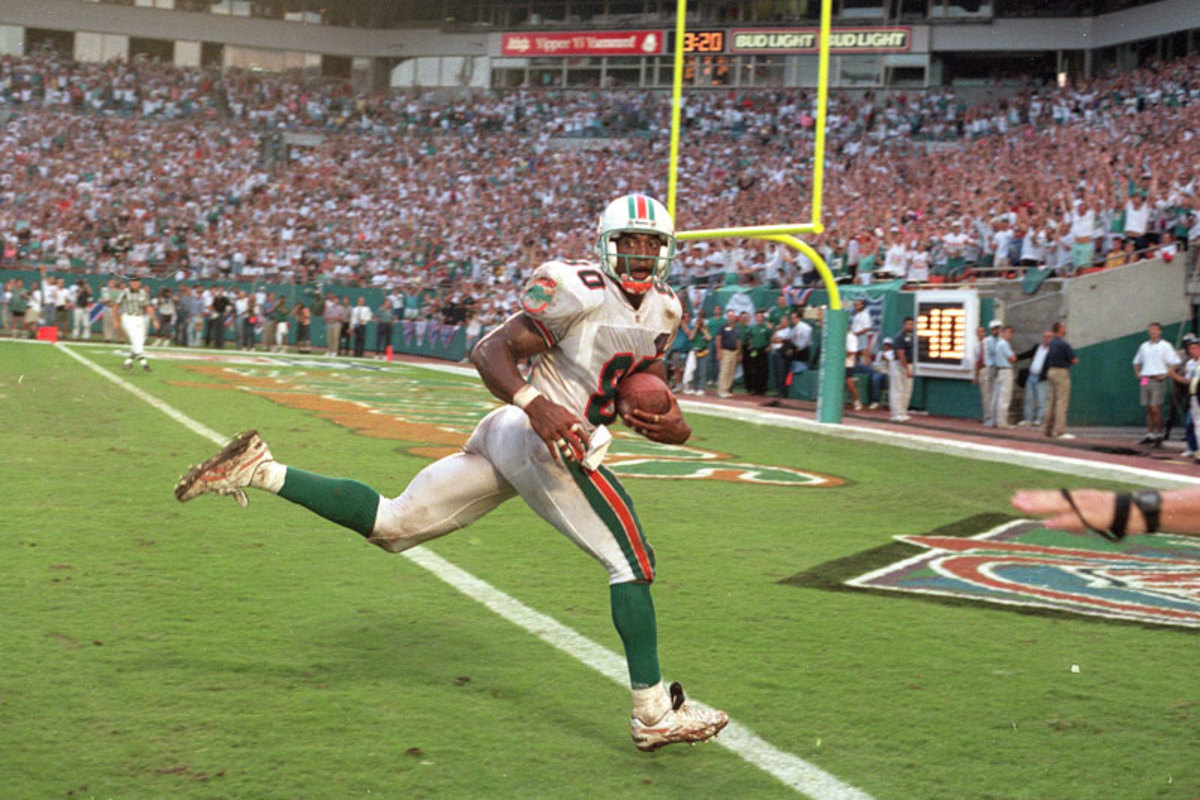
His best years, statistically, came with the Eagles, where Fryar earned the final two of his five Pro Bowl selections. (Andy Lyons /Allsport)
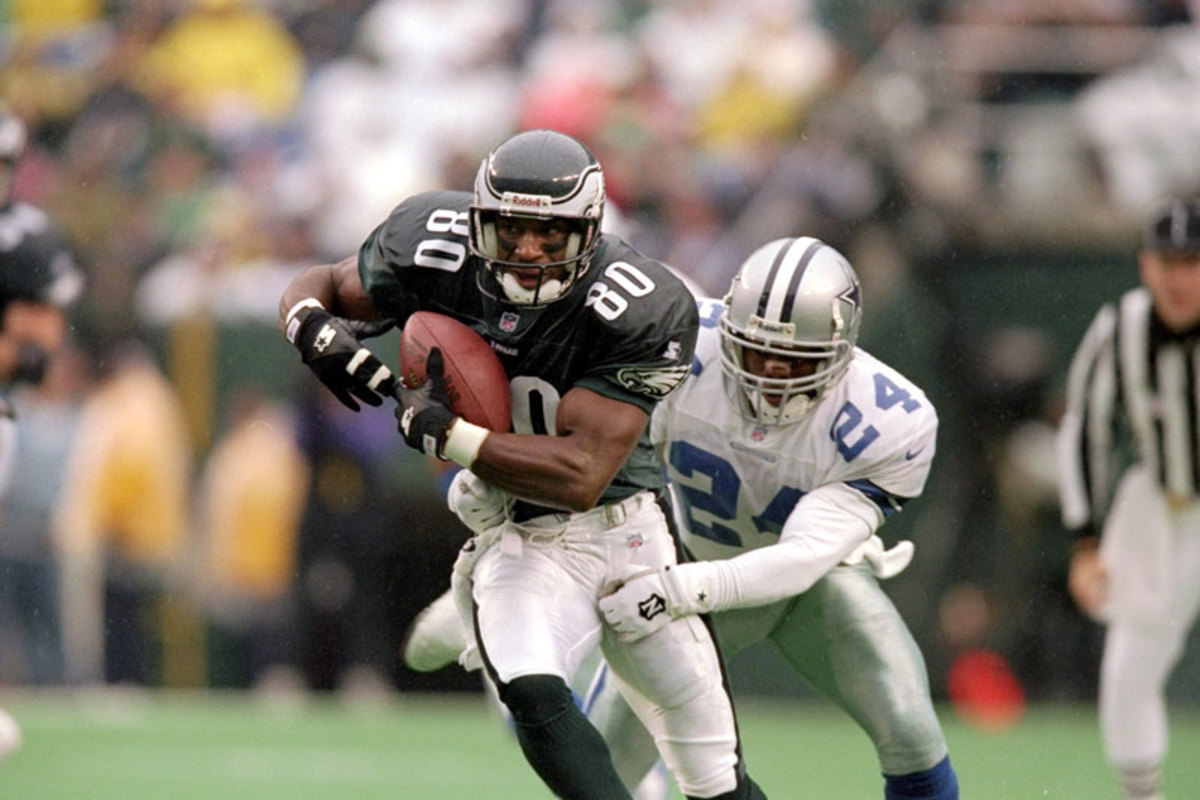
The image of Fryar as a financial schemer is at odds with the person friends describe as indifferent to money, almost to a fault. In 2013, before he was indicted, Fryar groused to the The Star-Ledger about New Jersey’s high taxes and said he would rather move elsewhere if he could, “but I’m here because God says this is where I have to be.”
Fryar’s agent, Michael George, said Fryar gave up a promising career in broadcasting after his playing career to found his church. Even though he was just “in an okay position” financially after his career, George says, he put most of what he had earned into the church. “I talked to him about it and I told him: I thought he should stay in his current situation [as a broadcaster]. But he wasn’t motivated by money,” George says.
This was the heart of Fryar’s pitch when he applied to become head football coach at Robbinsville High in central New Jersey, about 30 minutes north of Mount Holly, for the 2013 season. He told the selection committee he had an opportunity for a well-paid position at Liberty University, where his former Nebraska teammate, quarterback Turner Gill, was head coach, but he was more interested in helping local kids at a job that paid less than $10,000. “The road to redemption is paved with a lot of hard work,” he told the committee, one of whose members said that the troubled, 1980s version of Fryar “seemed like a different person from a different time.” The school board checked his fingerprint records and approved his selection, 7-0.
“We respected him a lot,” says Gildner, who played for Fryar at Robbinsville High. “He was very good at making you buy in.”
He was stern with his players, but they connected with the empathy of someone who had made his own youthful mistakes. He took the tactical aspects of the job seriously, but his primary goal was teaching his players to be gentlemen. Swearing was forbidden, and if he heard explicit lyrics from songs on the weight room stereo, he’d make the players change the music. His motivational speeches brimmed with the moral intensity of his sermons, but he was understated about himself: He never romanticized his youthful misdeeds or bragged of his accomplishments as a player. And though everyone knew he was a pastor, he never proselytized.
Tyler Gildner, a senior on the team, says, “We were all like, ‘This is amazing.’ We respected him a lot. He was a very good speaker, and he was very good at making you buy in.”
The indictment came down five games into the 2013 season. Fryar was dismissed shortly thereafter. “Essentially for the senior class, he kind of ruined our year,” says senior Tom Biscardi. “One of his main points was to turn us into better people, so coming from him, it was pretty devastating.”
* * *
(Robert Rogers/Sports Illustrated)

Fryar’s potential fall from grace is devastating in the same proportion as his redemption story has been uplifting. His personal narrative has revolved around such dualities: He went from the ultimate sinner to a person saturated with the Holy Spirit. At trial, he will be found either guilty or innocent.
But maybe the lesson of his story is that there is room for moral gray areas. It seems possible that someone who put his money into a church and dedicated himself to helping others could be the same person who, subsequently, needed money so badly that he broke the law. It seems possible that Fryar is neither Barksdale’s unwitting dupe nor a criminal mastermind, but rather someone in a desperate situation who heard in Barksdale’s scheme what he wanted to hear and neglected to consider the ramifications. It seems possible that Fryar is neither a holy man with a direct line to God nor a charlatan, but rather a human being with conflicting impulses.
Still, those who have invested their faith in Fryar are hoping it’s not true. Keith Elias, a former Giants and Colts running back who has become close with Fryar around their shared religious faith, says, “He’s shared with me his life. He’s been authentic and transparent. He’s never showed himself to me to be false or to be a liar. So I believe in Irving.”
(Damian Strohmeyer/Sports Illustrated)


[widget widget_name="SI Newsletter Widget”]
